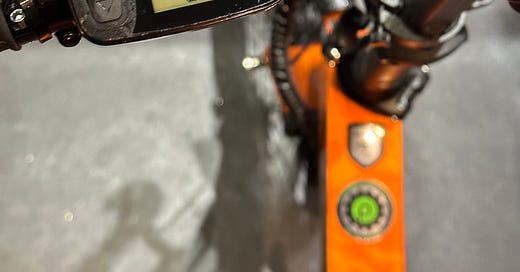I heard something recently about trust that struck me. It was from a podcast, The Problem With Jon Stewart (which by the way is a brilliant double entendre title) and the episode included an interview with, among others, Dr Saad Omer, director of the Yale Institute for Global Health. He was sharing some research into trust in the context of COVID denial and vaccine scepticism.
Apparently, people are more likely to trust authority figures when they feel able to believe three things are present:
perceived empathy
perceived lack of conflicts of interest
perceived competence
He only mentioned them and moved on, but I’ve been thinking a lot about it since, especially given that winning trust is a big part of my day job. (I wrote about that here.)
It’s probably only incidental that he mentioned competence last, but I think that’s appropriate. People really do find it easier to believe you’re competent when the other two things are in place, and where they think there are conflicts of interest or no empathy, they are prone to distrust any competence you might claim.
After all, it doesn’t really matter how good at stuff someone is if they’re out to harm you. In fact, that only makes you more suspicious, doesn’t it? Or put differently, a good God who isn’t powerful is simply irrelevant, but a powerful God who isn’t good? That would be terrifying.
The lesson here? To win people’s trust, it’s probably worth going in that order: show that you have their interests in view, and then be clear as to your having no other competing interests in view. Then they might be interested in knowing how much you know and can do.
Soul wounds
The thing about trust, of course, is that while it can take a while to build, we can lose it rapidly. And then it’s even harder to regain. And a quote from one of my favourite authors reminded me of why it’s harder:
Once the soul grows accustomed to the wound, it’s much harder to fix.
— Brandon Sanderson, Oathbringer
The quote brings to mind a tree that’s misshapen by being forced to grow around an obstacle. Or a broken leg that’s been poorly set, so it’s healed but with a permanent deformity that you now can’t simply reset.
That’s what happens when trust is lost.
Oh, I could ride 300 miles…*
(Just in case you don’t get that reference.)
I’ve now ridden 300 miles (that’s over 480 km) on my e-bike.
And over the course of that time, I’ve come to realise something I never really thought about until I started cycling. See, most of those miles are from just going around town to places I needed to be: work, friends, and so on. Only twice, so far, have I gone riding just to ride.
We tend to think of exercise as something you go out of your way to do: whether that’s going to the gym, running or whatever else. But physical activity throughout history was just built into everyday life. Of course, everyday life has since changed from what it’s historically been, but cycling helps me get some of that back. When I ride to work and back, I’m getting physical activity as merely part of everyday life.
I’m grateful I get to do that.
What have you been grateful for recently?





When you trust someone at first and you are being disappointed, it’s very hard to trust again ‘cos the hurts or damage done cannot be erased.A thoughtful write up!👍
Trust is so hard to build but so easily destroyed.